Healthiest Bread Brands Shopping Guide
Written by:
Suzanne Weaver-Goss
05/30/2023
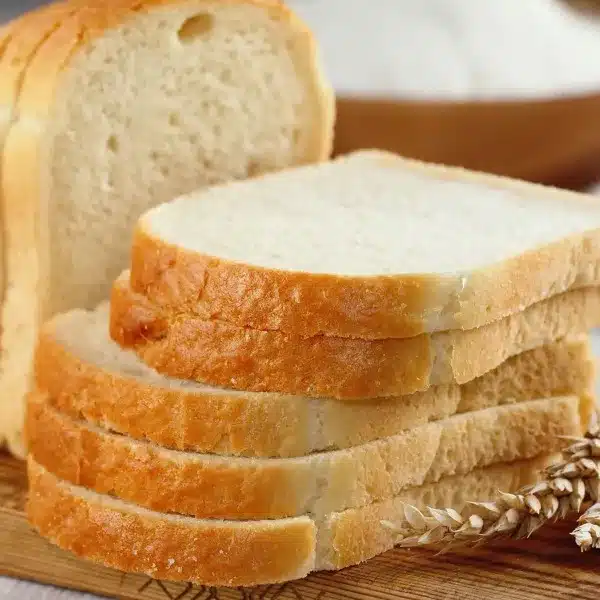
Updated: 09/28/2023
Looking for a different guide? Browse them all HERE.
Whether you eat bread a lot or consider is a treat, you’re probably looking to find the healthiest bread brands.
Because of confusing/competing dietary theories, I eat less bread than I used to, but I will never give it up completely. I also have five grandchildren who eat lots of bread, so I am always looking for the very healthiest bread brands.
Read on for my top picks for whole wheat bread, gluten-free bread, and grain-free breads as well as what we consider the healthiest bread brands.
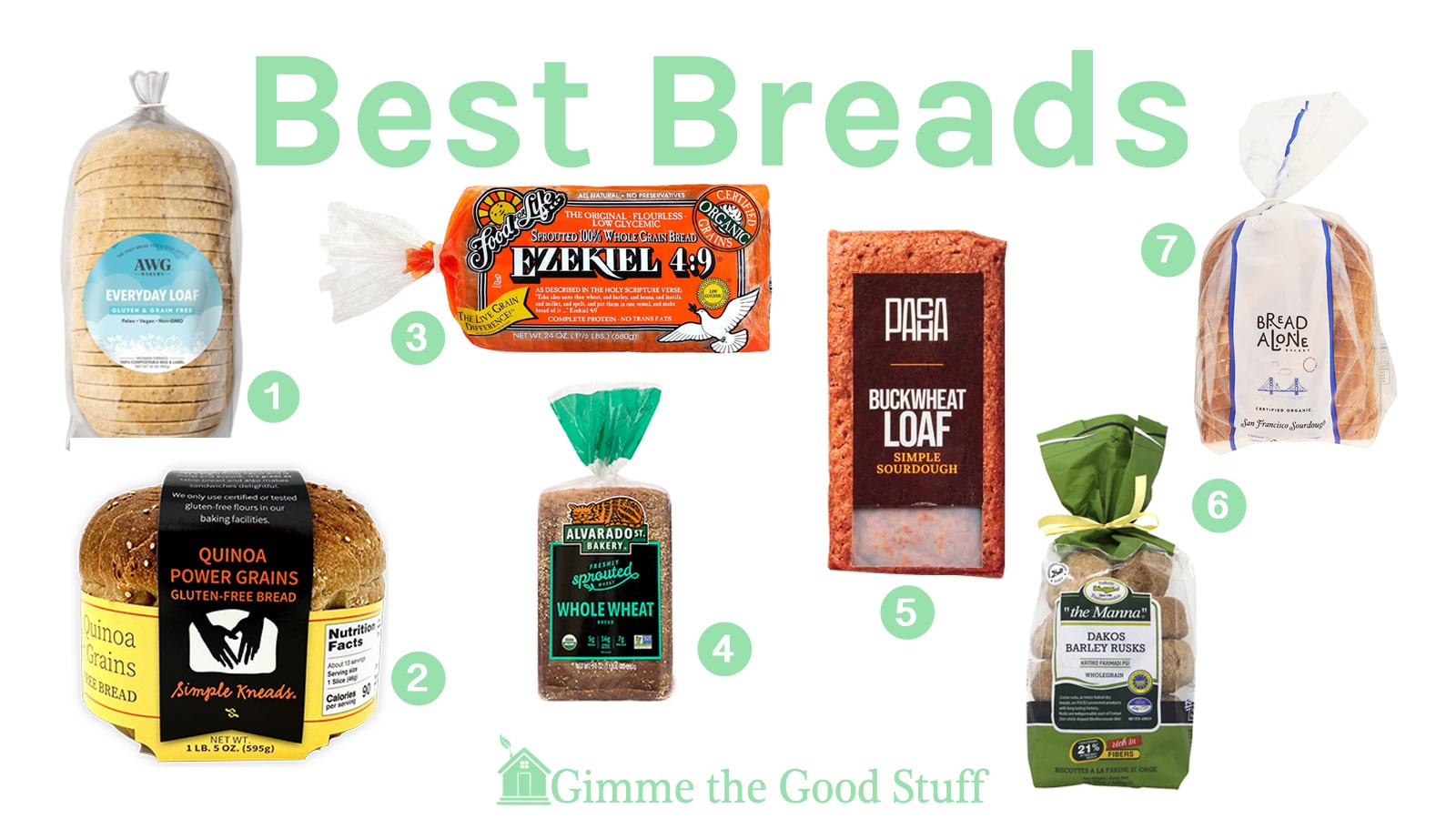
1. AWG / 2. Simple Kneads / 3. Ezekiel / 4. Alvarado / 5. Pacha / 6. Manna / 7. Bread Alone
What Is Healthy Bread?
As you likely know, there is considerable controversy about the wisdom of consuming wheat-based bread. The healthiest bread brands will differ depending on whom you ask, but some likely criteria include:
- Organic ingredients
- Sourdough
- Sprouted bread
- Whole grain breads
- Gluten-free
- Grain-free
- Paleo
- Quality sweeteners and fats
After all these decades of watching bread evolve, here is my definition of healthy bread: Healthy bread is made from real, whole-food ingredients–sprouted or sourdough if possible.
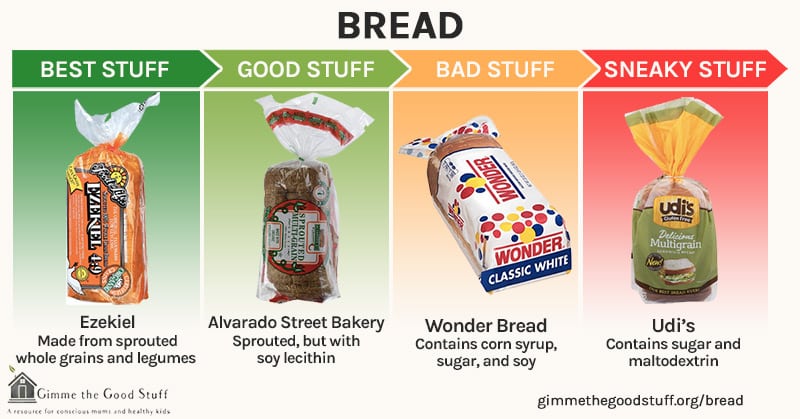
What’s Wrong with Most Bread
A lot of bread, especially sliced sandwich bread with a long shelf life, includes unhealthy ingredients and additives. For instance:
- Highly refined flour—you’ll even find this in some “whole grain” loaves.
- Lots of added sugars, including high-fructose corn syrup—have you ever noticed how sweet some packaged breads are?
- Cheap, low-quality oils, such as soy and canola, and other seed oils like sunflower and safflower, even in the so-called healthiest bread brands.
- Artificial preservatives—this enable a long shelf life, but I’d rather freeze or refrigerate my bread!
- Artificial colors to make bread look browner (because that’s healthier, right?) or yellow (hello, potato bread!), etc.
- Cellulose fiber, which is sneakily added to up the fiber content in “healthy” bread and is often sourced from wood in a chemical-laden process. I’d much rather get my fiber from real whole grains!
- Industrial bread production involves a lot of other additives that we’d never use in our own kitchens, including dough conditioners (which are as gross as they sound).
Grain-Free Versus Gluten-Free Bread
Something else to note when looking for the healthiest bread brands is the difference between gluten-free and grain-free bread.
Gluten free breads ditch wheat, rye and barley, and are typically made with all sorts of grain and legume flours which are naturally free of gluten. These flours are made of things like rice, corn, tapioca, potato, chickpea, and many more.
Healthy gluten-free bread is made from real ingredients. Some gluten-free breads are definitely not healthful. They can be made from highly refined carbohydrates and include many additives to make up for the lack of gluten. You’ll learn more about the brands I like below.
Grain-free bread is bread does not include any grains (including rice, oats, quinoa, millet, etc.). Note that buckwheat is actually a seed rather than a grain, so it is good for both gluten-free and grain-free diets.
I don’t personally have a wheat allergy or sensitivity, but sometimes I opt for the gluten free or grain free bread. A downside to these alternative breads is that they are expensive–from $10 a loaf all the way up to $25!
Related post: In Defense of Grains.
Traditional Breads
I love traditional healthy breads from local bakeries, and these can be very healthful. In Vermont, where we lived for many years, there are many bakeries that make traditional European-style sourdough breads baked in a brick oven (Red Hen is a current favorite). Such bakers source their grains or flours very carefully and generally use top-quality ingredients. We now live in Pennsylvania and we have a local bakery that sources their wheat locally and their bread is sourdough (Front Porch Bakery is my favorite!).
Whatever kind of healthy bread you choose, consider some of my favorite toppings and spreads: nut butters (like almond and peanut), seed butters (like tahini, which goes great with honey!), and organic butter or ghee.
Now, let’s take a look at the bread you can use as your vehicle for all these yummy spreads…
Good Stuff: Healthiest Bread Brands
AWG Bakery Gluten-Free & Grain- Free Bread
AWG stands for Air Water and Greens. We love this bread because all of their ingredients are organic, plus it’s gluten-free and grain-free.
This bread has more of a variety of ingredients than popular Pacha bread (which you’ll learn about below). This could be a selling point to some, but could be an allergen limitation to others.
AWG bread is very expensive, and the fact the reason is largely that it contains organic almond flour. Let me explain why this is!
In the early 2000s, there were a few outbreaks of salmonella traced to raw almonds from California (where nearly 100% of America’s almonds are grown). As a result, the USDA implemented a rule that required all almonds grown in California to be pasteurized–both organic and non-organic varieties. There are various ways to achieve pasteurization, but one way is by using a chemical called propylene oxide. Propylene oxide, also known as PPO, is prohibited in organic foods, and the EPA calls it “probable human carcinogen.” Moreover, almonds are almost always treated with glyphosate unless they are organic.
Bottom line: we love that AWG uses organic almonds in their breads.
Everyday Loaf Ingredients: Water, Organic Arrowroot Flour, Organic Almond Flour, Organic Coconut Flour, Organic Psyllium Husk Powder, Organic Apple Cider Vinegar, Organic Black Chia Seeds, Yeast, Organic Maple Syrup, Himalayan Pink Salt, Organic Olive Oil
Price per loaf: $17-$25
Bread Alone
This bread is not yet available nationally, but it is among the healthiest bread brands available. Bread Alone uses all organic ingredients and traditional baking methods that allows their sourdough bread to undergo a natural fermentation process. This process improves its digestibility and nutrient availability of their sourdough varieties. Bread Alone offers a variety of whole grain options in their breads as well.
Bread Alone’s absolute healthiest breads are the Whole Wheat Sourdough, Whole Grain Health, and the Nine Mixed Grains.
We also love their bagels, although these contain a small amount of organic sugar.
The only bread from Bread Alone that we cannot call Good Stuff is their Cinnamon Twist, as it contains 15 grams of sugar and canola oil (but oh my, is it delicious!).
Whole Wheat Sourdough Ingredients: Water, organic whole wheat flour, organic wheat flour, organic rye flour, organic whole wheat sourdough, and salt.
Price per loaf: $6-$7.50
Pacha Gluten-Free & Grain-Free Bread
Pacha makes a simple sprouted buckwheat bread. Made with all organic ingredients, it comes in four delicious flavors–Cheesy Herb, Garlic Rye, Buckwheat Buns, and Buckwheat Loaf.
Despite its name, buckwheat is not a type of wheat. Officially, it’s not even a grain, but rather a seed that’s harvested from a flowering plant related to rhubarb. But the pyramid-shaped kernels are similar to grains from both a culinary and nutritional perspective.
Buckwheat Loaf Ingredients: Organic sprouted buckwheat, organic sea salt.
Price per loaf: $12
Use code GIMME20 for 20% off.
Simple Kneads Sourdough Gluten-Free Bread
This bread comes in four different flavors: Quinoa Power, Cinnamon Raisin, Sourdough, and Pumpernickel. The ingredients vary a little, but the base is the same.
This is a great choice for people looking for a gluten-free sourdough bread.
We do have to ding Simple Kneads for including sunflower oil in every loaf, which is why we won’t call this one the healthiest bread brand out there.
Ingredients: Water, Millet Flour*, Sorghum Flour*, Teff Flour*, Buckwheat Flour*, Quinoa Flour*, Psyllium Seed Husk Powder*, Expeller Pressed Sunflower Seed Oil*, Raisin Juice Concentrate*, Flax Meal*, Sea Salt, Sunflower Seeds*. *Denotes Organic Ingredients
Price per loaf: $10
Alvarado Street Bakery Sprouted Bread
Alvarado Street Bakery was one of sprouted bakeries in California when I first started eating healthy in the 70’s.
I like Alvarado, and consider it Good Stuff, but they are not my top sprouted bread because you really have to read the labels. They have lots of different breads and some have sunflower oil, agave, and some even have cane sugar. And the sourdough loaves contain yeast, means they are not technically sourdough at all.
One thing we like about Alvarado is that they make bagels and hot dog/hamburger buns that are healthier than most bread companies.
Whole Wheat Bread Ingredients: Sprouted Organic Whole Wheat Berries, Filtered Water, Organic Grain and Seed Mix (Organic Cracked Wheat, Organic Yellow Cornmeal, Organic Millet, Organic Flax Seeds, Organic Rolled Oats, Organic Sunflower Seeds, Organic Rye Flakes), Wheat Gluten, Organic Whole Wheat Flour, Unsulphured Molasses, Organic Sunflower Oil, Cultured Wheat Starch, Organic Cane Sugar, Yeast, Organic Vinegar, Organic Unbleached Wheat Flour, Enzymes, Ascorbic Acid.
Price per loaf: $6.49
Ezekiel Sprouted Bread
Food For Life’s Ezekiel is among the very healthiest bread brands. This sprouted bread is my favorite for a sandwich, especially a grilled cheese. Ezekiel is the best sprouted bread on the market–plus, it’s widely available and comes in a variety of flavors, from sesame to cinnamon raisin. Because it’s made from whole grains and legumes, it’s a great source of complex carbohydrates, fiber, protein, and many vitamins and minerals.
Sprouted Grain & Seed Ingredients: Organic Sprouted Wheat, Filtered Water, Organic Malted Barley, Organic Pumpkin Seeds, Organic Sunflower Seeds, Organic Sesame Seeds, Organic Unprocessed Wheat Bran, Organic Sprouted Spelt, Organic Sprouted Corn, Organic Sprouted Soybeans, Sprouted Chia Seeds, Organic Sprouted Barley, Organic Sprouted Millet, Organic Sprouted Rye, Organic Sprouted Brown Rice, Variety 4-Grain & Seed Blend: (Organic Sprouted Flax Seed, Organic Sprouted Quinoa, Organic Sprouted Teff, Organic Sprouted Amaranth), Organic Wheat Gluten, Yeast, Sea Salt.
Price per loaf: $6.29
Manna Organics Sprouted Bread
These cakey breads come frozen in moist, dense loaves.You can find Manna breads in natural food stores or the organic section of some grocery stores. It is cake-like; in fact, their carrot-raisin loaf reminds me of carrot cake! Because of its dense consistency, I like it better for breakfast, a side dish or snack than a sandwich. There are a variety of flavors, from sweet to savory. I thaw mine and store it in the fridge. Aside from the fact that it’s delicious, I like that Mighty Manna Bread is made from organic sprouted grains, is yeast free and sourdough! They have so varieties, Organic Sprouted Carrot Raisin, Organic Sprouted Banana Walnut Hemp, Fig Fennel Flax, Fruit and Nut, Millet and Rice, and Cinnamon Date are just some of them.
Multigrain Ingredients: Sprouted organic wheat kernels, filtered water, organic brown rice, organic barley, organic millet, organic flax seeds, organic rye kernels, organic soy beans, organic rolled oats, organic oat bran, organic cornmeal.
Price per loaf: $4.49
Dave’s Killer Bread Organic Wheat Bread
Dave’s Killer Bread is organic and available in many stores, which is great. However, this is another brand where you need to carefully read the labels. They offer many different breads and they vary in the ingredients. Some have added organic sugar (not too much, but still), and others have canola oil.
We do like that on their website you can compare products and sort by ingredients. I sorted for breads without added sugar and found my favorite, the Organic Powerseed bread.
Powerseed Ingredients: ‘ORGANIC WHOLE WHEAT (ORGANIC WHOLE WHEAT FLOUR, ORGANIC CRACKED WHOLE WHEAT), WATER, POWERSEED MIX (ORGANIC WHOLE FLAX SEEDS, ORGANIC GROUND WHOLE FLAX SEEDS, ORGANIC ROLLED OATS, ORGANIC SUNFLOWER SEEDS, ORGANIC PUMPKIN SEEDS, ORGANIC UN-HULLED BLACK SESAME SEEDS, ORGANIC UN-HULLED BROWN SESAME SEEDS), ORGANIC FRUIT JUICES (PEAR, PEACH, PINEAPPLE), ORGANIC OAT FIBER, ORGANIC WHEAT GLUTEN, SEA SALT, ORGANIC CULTURED WHOLE WHEAT, YEAST.’
Price per loaf: $7.99
If you’re enjoying this guide, sign up for our Newsletter to be alerted when we publish or update our Safe Product Guides.
Bad Stuff
The Bad Stuff should come as no surprise–don’t buy Wonder Bread ;).
Sneaky Stuff
Here are some breads that SOUND like they could be healthful, but that contain those yucky ingredients I mentioned above (from soybean oil to artificial colors) and very little actual whole grains.
Arnold Organic 100% Whole Grain Bread (soybean oil, canola oil, sunflower oil, sugar)
Pepperidge Farm Whole Grain (soybean oil, dough conditioners, and more)
Sara Lee 100% Whole Wheat (I mean, you probably didn’t think Sara Lee was Good Stuff, right?)
Thomas’ 100% Whole Wheat (sugar, preservatives)
Udi’s Whole Grain Bread (sugar, maltodextrin)
Did we miss any breads that you love? Please comment below if you have suggestions for more healthiest bread brands!
To your health,


Suzanne, Certified Holistic Health Coach
Note: This article contains affiliate links or sponsored content, which means that if you make a purchase, we may earn a commission. We only recommend products that meet our strict standards for non-toxicity and that we use (or want to use!) ourselves. Thank you so much for supporting the brands that make Good Stuff!
Enjoying this guide?
Join 60K families who rely on our free guides on everything from milk to mattresses! Sign up to get $5 off your first order, access to our ultimate Clean Products Cheat Sheet, and ongoing exclusive access to coupon codes and promotions. Our weekly newsletter is filled with well researched tips and tricks to live a toxin-free lifestyle.
Related Posts
Healthy Store Bought Oat Milk Guide 2024
How To Avoid Drinking Toxic Tea
The Healthiest Organic Wine Brands We’ve Found
Healthy Yogurt Guide
11 responses to “Healthiest Bread Brands Shopping Guide”
-
Simple Kneads makes sourdough gluten free bread that is healthier than most of what you can find in the grocery stores.
-
They’ve been added:)
-
-
I would love your thoughts in Oasis Low Carb breads!
-
I looked at them today and I think they look like Good Stuff!
-
-
hi sisters james charles here and welcome back to my youtube channel
-
Have you ever tried Dave’s Killer Bread? The 21 whole grains and seeds is my favorite and seems like good stuff.
-
Yes, it is Good Stuff. We are on vacation Maia and I saw it at the grocery store. Maia said she doesn’t like it because it tastes too sweet. I just checked the ingredients and it does have 5 grams of sugar per slice. So eating this bread would depend on your personal views regarding sugar consumption. It does have lots of great ingredients though.
-
I agree – I wish they could tone down the sugar on Dave’s Killer Bread, but it sure it good aside from that! 🙂
-
-
Same as above. Dave’s killer bread?
-
-
I love how I always check with your page when thinking about a new product… now that I see we were both once Vermonters…It all makes sense!
-
I love that too and I love all Vermonters!
-

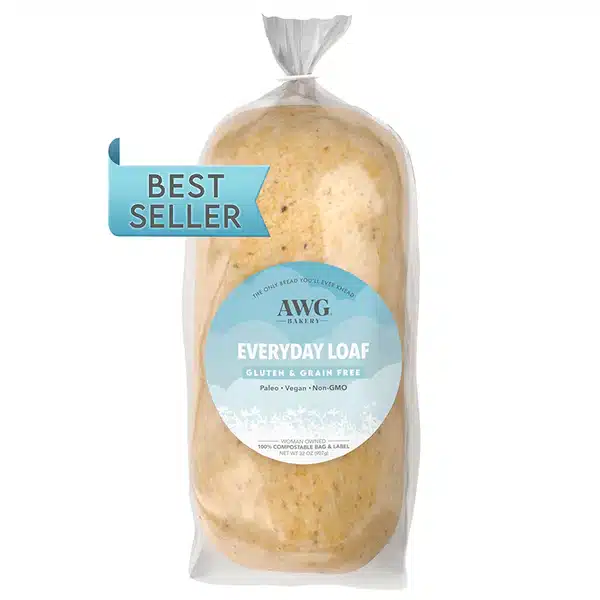
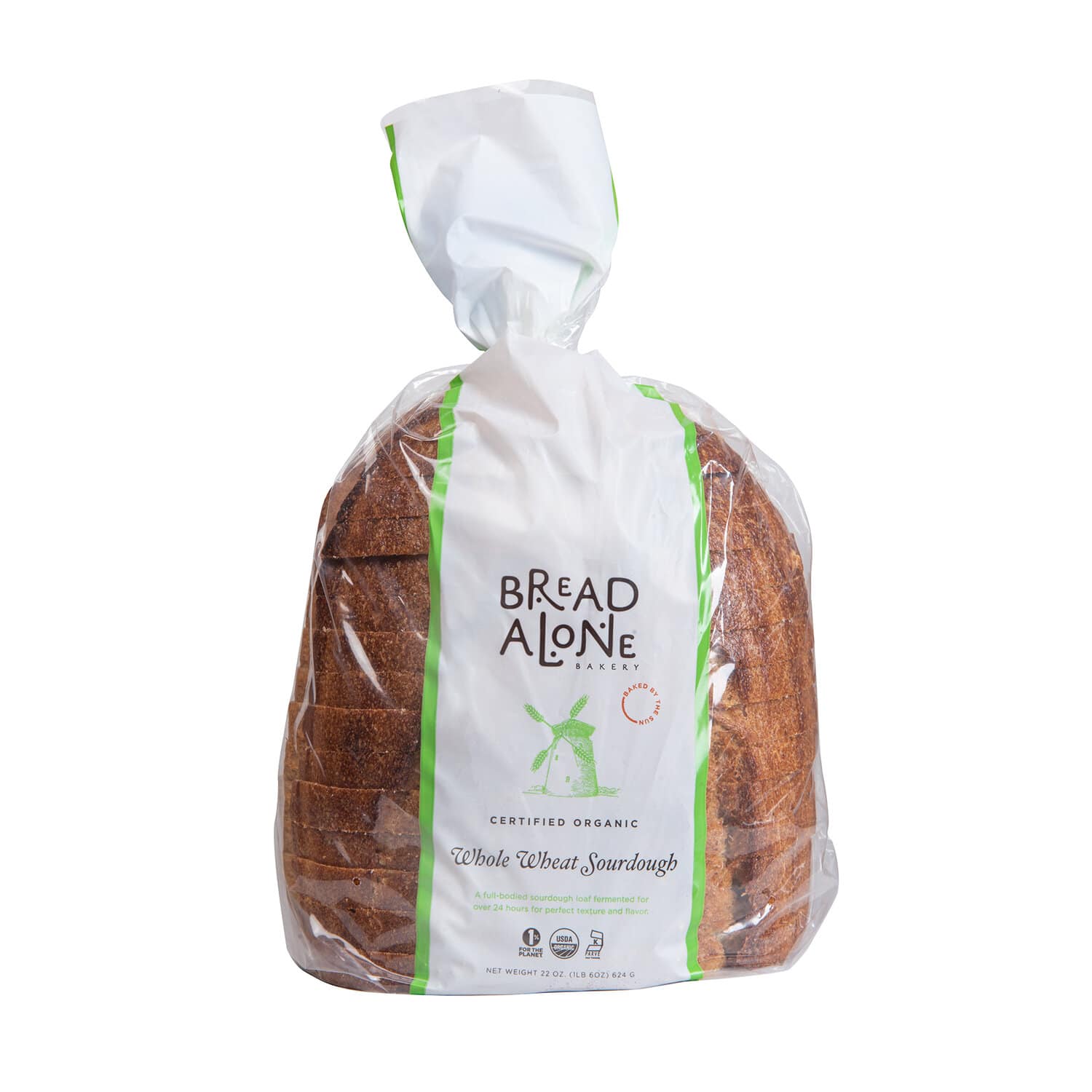
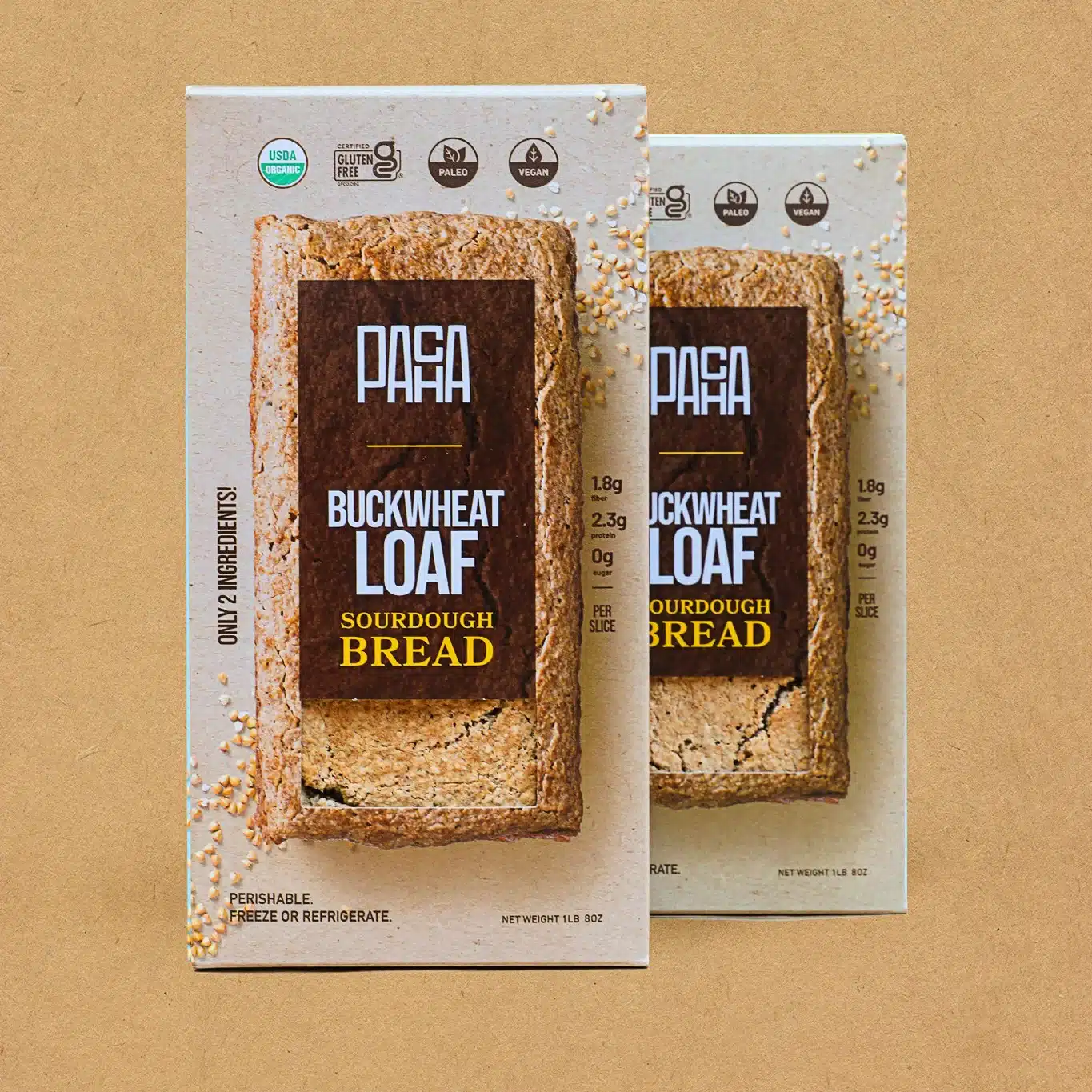
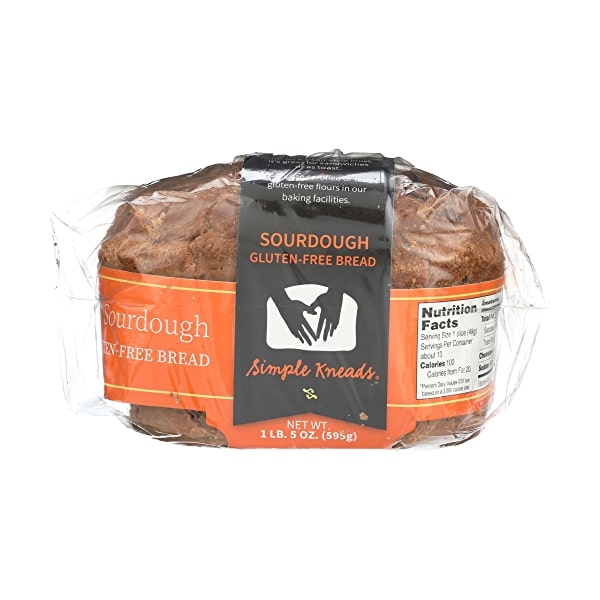
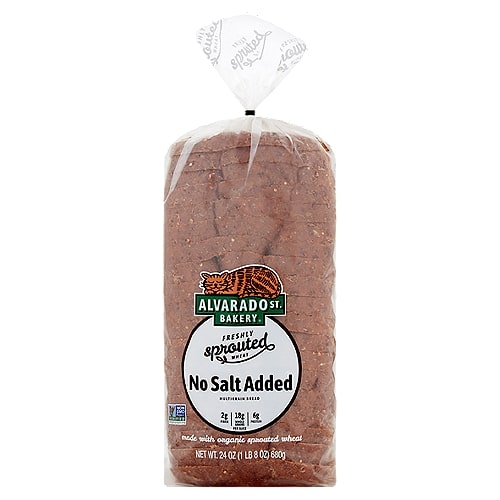
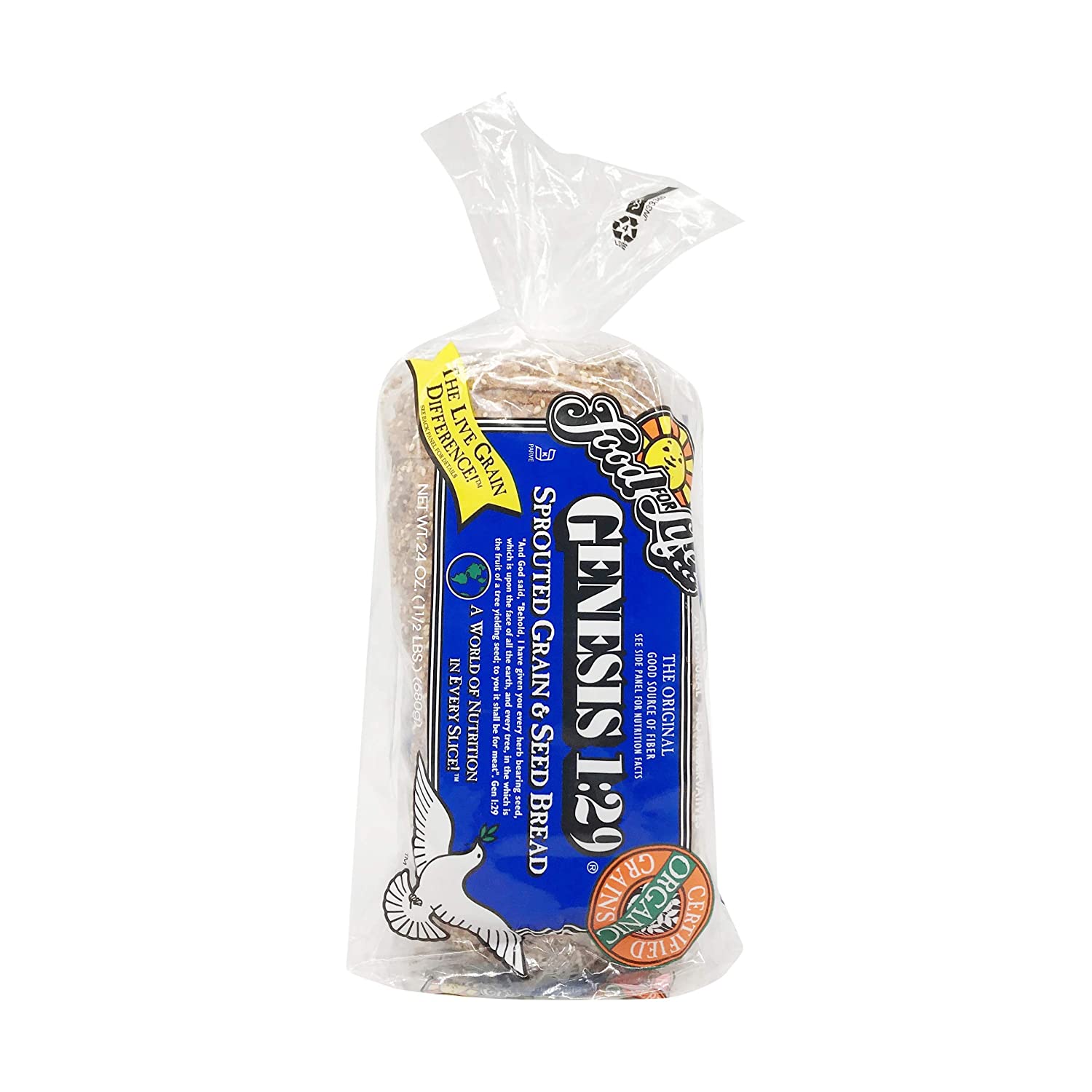
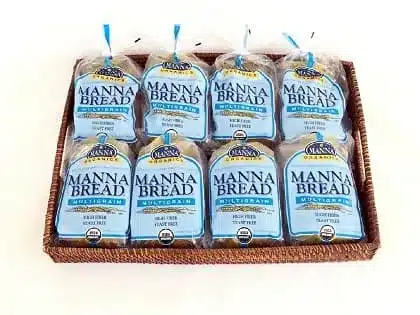
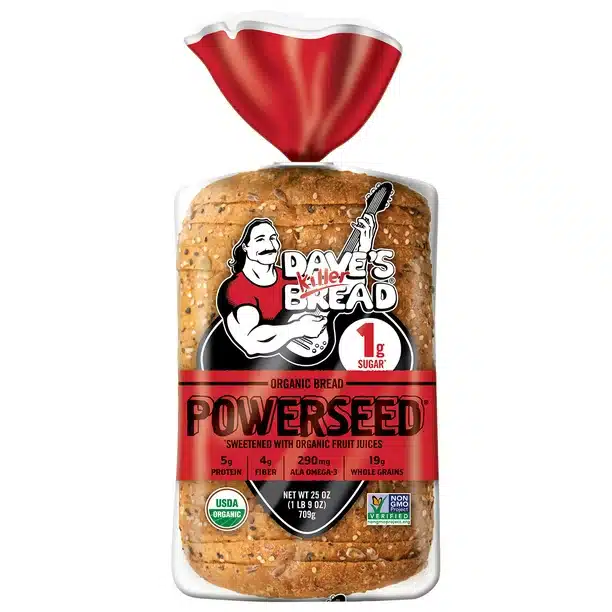
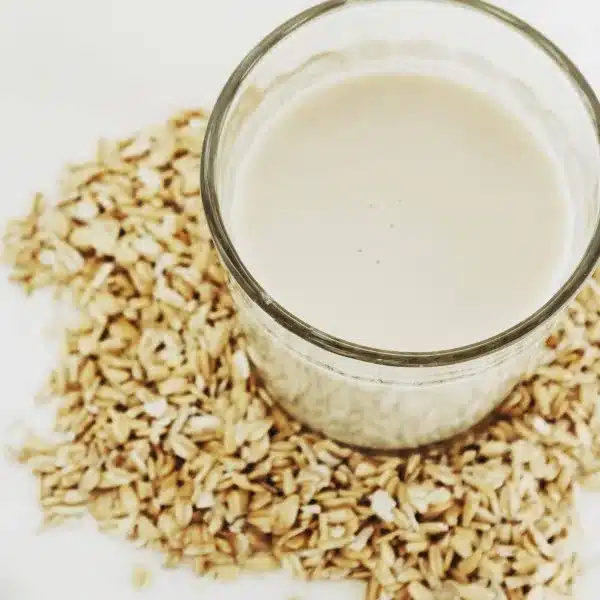
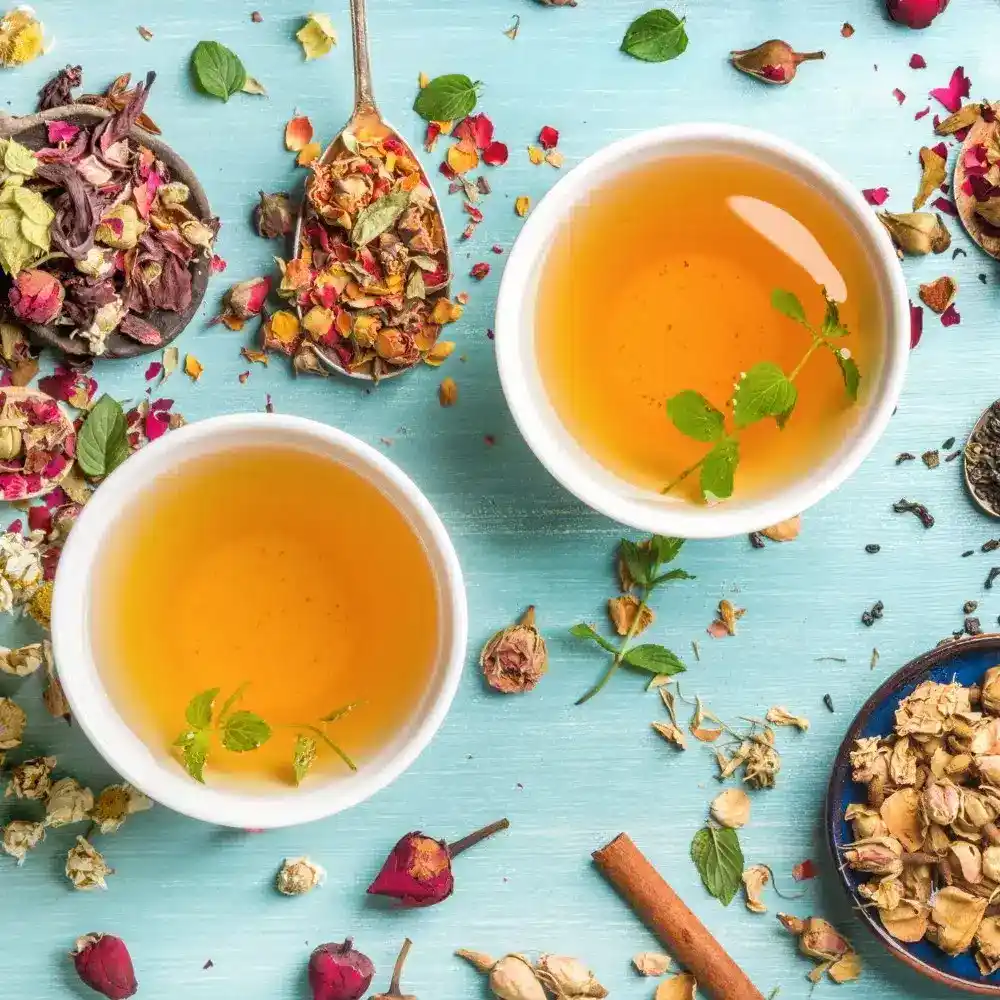


Leave a Reply
You must be logged in to post a comment.